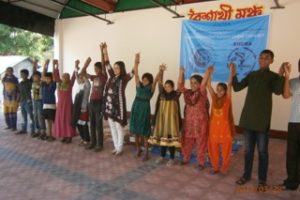Toni Morrison, the Nobel laureate in literature whose best-selling work explored black identity in America and in particular the often crushing experience of black women through luminous, incantatory prose resembling that of no other writer in English, died on Monday in New York City. She was 88.
Her death, at Montefiore Medical Center, was announced by her publisher, Alfred A. Knopf. A spokeswoman said the cause was complications of pneumonia. Morrison lived in Grand View-on-Hudson, New York.
The first African American woman to win the Nobel Prize in literature, Morrison was the author of 11 novels as well as children’s books and essay collections. Among them were celebrated works like “Song of Solomon,” which received the National Book Critics Circle Award in 1977, and “Beloved,” which won the Pulitzer Prize in 1988.
Morrison was one of the rare American authors whose books were both critical and commercial successes. Her novels appeared regularly on The New York Times bestseller list, were featured multiple times on Oprah Winfrey’s television book club and were the subject of myriad critical studies. A longtime faculty member at Princeton University, Morrison lectured widely and was seen often on television.
In awarding her the Nobel, the Swedish Academy cited her “novels characterised by visionary force and poetic import,” through which she “gives life to an essential aspect of American reality.”
Morrison animated that reality in prose that rings with the cadences of black oral tradition. Her prose, often luminous and incantatory, rings with the cadences of black oral tradition. Her plots are dreamlike and nonlinear, spooling backward and forward in time as though characters bring the entire weight of history to bear on their every act.
Her narratives mingle the voices of men, women, children and even ghosts in layered polyphony. Myth, magic and superstition are inextricably intertwined with everyday verities, a technique that caused Morrison’s novels to be likened often to those of Latin American magic realist writers like Gabriel García Márquez.
In “Sula,” a woman blithely lets a train run over her leg for the insurance money it will give her family. In “Song of Solomon,” a baby girl is named Pilate by her father, who “had thumbed through the Bible, and since he could not read a word, chose a group of letters that seemed to him strong and handsome.” In “Beloved,” the specter of a murdered child takes up residence in the house of her murderer.
Throughout Morrison’s work, elements like these coalesce around her abiding concern with slavery and its legacy. In her fiction, the past is often manifest in a harrowing present — a world of alcoholism, rape, incest and murder, recounted in unflinching detail.
It is a world, Morrison writes in “Beloved” (the novel is set in the 19th century but stands as a metaphor for the 20th), in which “anybody white could take your whole self for anything that came to mind.”
“Not just work, kill or maim you, but dirty you,” she goes on. “Dirty you so bad you couldn’t like yourself anymore. Dirty you so bad you forgot who you were and couldn’t think it up.”
But as Morrison’s writing also makes clear, the past is just as strongly manifest in the bonds of family, community and race — bonds that let culture, identity and a sense of belonging be transmitted from parents to children to grandchildren. These generational links, her work unfailingly suggests, form the only salutary chains in human experience.
“She is a friend of my mind,” a character in “Beloved,” a former slave, thinks about the woman he loves. “She gather me, man. The pieces I am, she gather them and give them back to me in all the right order. It’s good, you know, when you got a woman who is a friend of your mind.”
A FIRST DOOMED HEROINE
Morrison’s singular approach to narrative is evident in her first novel, “The Bluest Eye,” written in stolen moments between her day job as a book editor and her life as the single mother of two young sons. Published in 1970, it is narrated by Claudia McTeer, a black girl in Ohio, who with her sister, Frieda, is the product of a strict but loving home.
Reviewing the novel in The New York Times, John Leonard commended Morrison for telling the story “with a prose so precise, so faithful to speech and so charged with pain and wonder that the novel becomes poetry.”
The novel prefigures much of Morrison’s later work in its preoccupation with history — often painful — as seen through the lens of an individual life; with characters’ quests, tragic or successful, for their place in the world; with the redemptive power of community; and with the role women play in the survival of such communities.
Morrison explored these themes even more overtly in her second novel, “Sula” (1973), about the return of a young woman, now a scandalous temptress, to her Midwestern hometown and the ostracism she confronts there, and in her third, “Song of Solomon” (1977), the book that cemented her reputation.
“Song of Solomon” was chosen as a main selection by the Book-of-the-Month Club, the first novel by a black author to be so honored since Richard Wright’s “Native Son” in 1940.
‘BELOVED’: HER MASTERWORK
Morrison published “Beloved,” widely considered her masterwork, in 1987. The first of her novels to have an overtly historical setting, the book — rooted in a real 19th-century tragedy — unfolds about a decade after the end of the Civil War.
Widely acclaimed by book critics, “Beloved” was made into a 1998 feature film directed by Jonathan Demme and starring Winfrey.
For mid-20th-century readers, one of the most striking things about Morrison’s work was that it delineates a world in which white people are largely absent, a relatively rare thing in fiction of the period.
What was more, the milieu of her books, typically small-town and Midwestern, “offers an escape from stereotyped black settings,” as she said in an interview in “Conversations With Toni Morrison” (1994; edited by Danielle Taylor-Guthrie), adding, “It is neither plantation nor ghetto.”
OHIO-BORN
It was in just such a setting that Morrison herself was reared. The daughter of George Wofford and Ella Ramah (Willis) Wofford, she was born Chloe Ardelia Wofford on Feb. 18, 1931, in Lorain, Ohio, an integrated working-class community about 30 miles west of Cleveland.
At 12, Chloe joined the Roman Catholic Church. She took the baptismal name Anthony, becoming known as Chloe Anthony Wofford.
That name would be the seed from which her nickname would spring a few years later, when she was an undergraduate at Howard University in Washington. She began calling herself Toni then, she said, because her classmates found the name Chloe bewildering.
After receiving a bachelor’s degree from Howard with a major in English and a minor in classics in 1953, she earned a master’s in English from Cornell in 1955. She taught English for two years at Texas Southern University, a historically black institution in Houston, before returning to Howard as a faculty member.
There, she joined a fiction workshop and began writing in earnest. Required to bring a sample to a workshop meeting, she began work on a story about a black girl who craves blue eyes — the kernel of her first novel.
In 1958, she married Harold Morrison, an architect from Jamaica; they were divorced in 1964. In interviews, Morrison rarely spoke of the marriage, though she intimated that her husband had wanted a traditional 1950s wife — and that, she could never be.
After her divorce, Morrison moved with her sons to Syracuse, New York, where she took a job as an editor with a textbook division of Random House. A stranger in the city, she found herself achingly lonely. In the interstices between work and motherhood, she began turning her short story into “The Bluest Eye.”
In the late 1960s, Morrison moved to New York City and took an editorial position with Random House’s trade-book division. Over the nearly two decades she held the post, her authors included Angela Davis, Gayl Jones, Toni Cade Bambara and Muhammad Ali.
“I look very hard for black fiction because I want to participate in developing a canon of black work,” Morrison said in an interview quoted in The Dictionary of Literary Biography. “We’ve had the first rush of black entertainment, where blacks were writing for whites, and whites were encouraging this kind of self-flagellation. Now we can get down to the craft of writing, where black people are talking to black people.”
One of the nonfiction projects on which she worked at Random House was “The Black Book,” published in 1974. Compiled by Morrison, the volume is a lavishly illustrated scrapbook spanning three centuries of African American history, reproducing newspaper clippings, photographs, advertisements, handbills and the like.
Researching the book, Morrison came across a 19th-century article about a fugitive slave named Margaret Garner who, on the point of recapture near Cincinnati, killed her infant daughter. More than a decade after “The Black Book” appeared, the story would become the armature of “Beloved.”
A LETTER AND A PRIZE
“Beloved” won the Pulitzer Prize that April. In 2006, after polling hundreds of writers, editors and critics, The Book Review named the novel the best American work of fiction of the previous quarter-century.
Morrison’s fourth novel, “Tar Baby” (1981), deals explicitly with issues of racial and class prejudice among black people. Set on a Caribbean island, it chronicles the love affair of a cosmopolitan, European-educated black woman with a rough-and-tumble local man.
Her other novels include “Jazz” (1992), set in 1920s New York; “A Mercy” (2008), which divorces the institution of slavery from ideas of race by setting the narrative in the 17th century, where servitude, black or white, was apt to be determined by class; and “Home” (2012), about a black Korean War veteran’s struggles on returning to the Jim Crow South.
Morrison’s volumes of nonfiction include “Playing in the Dark: Whiteness and the Literary Imagination” (1992) and “What Moves at the Margin: Selected Nonfiction” (2008, edited by Carolyn C. Denard).
She wrote the libretto for “Margaret Garner,” an opera by Richard Danielpour that received its world premiere at the Detroit Opera House in 2005 with the mezzo-soprano Denyce Graves in the title role.
In 1989, Morrison joined the faculty of Princeton, where she taught courses in the humanities and African American studies, and was a member of the creative writing program. She went on emeritus status in 2006.
Morrison is survived by her son Harold Ford Morrison and three grandchildren. Another son, Slade, with whom she collaborated on the texts of many books for children, died in 2010.
Her other laurels include the National Humanities Medal in 2000 and the Presidential Medal of Freedom, presented in 2012 by President Barack Obama. The Toni Morrison Society, devoted to the study of her life and work, was founded in 1993.






















